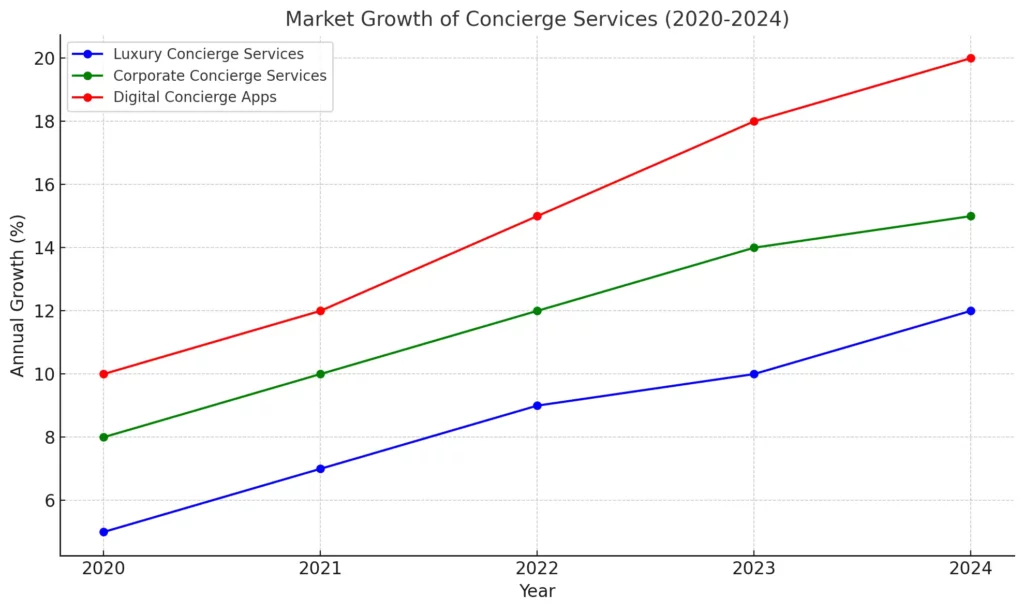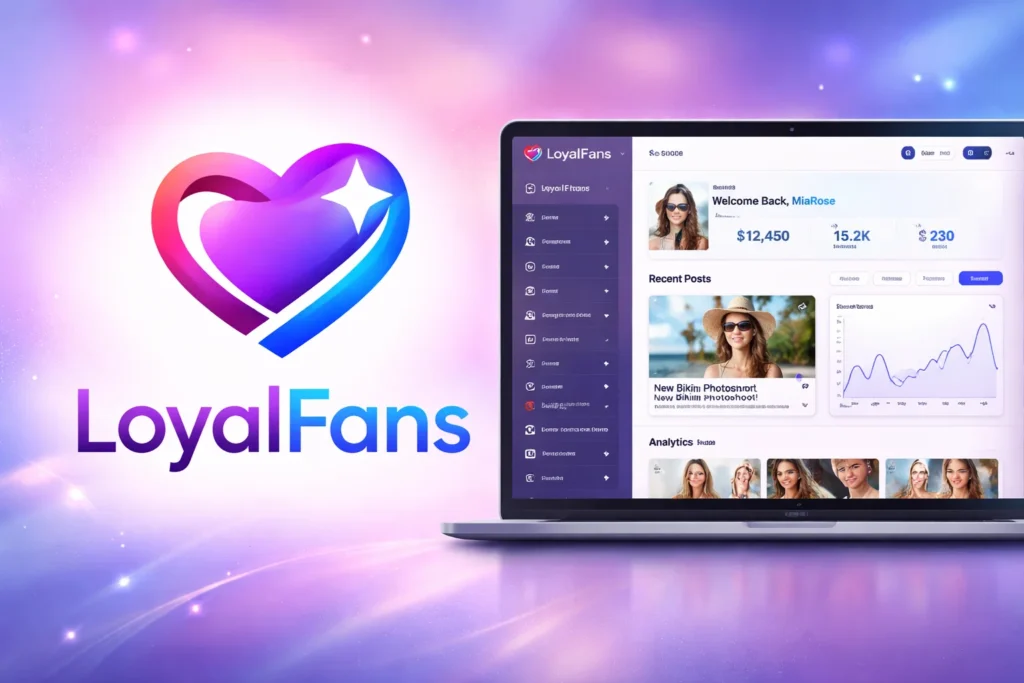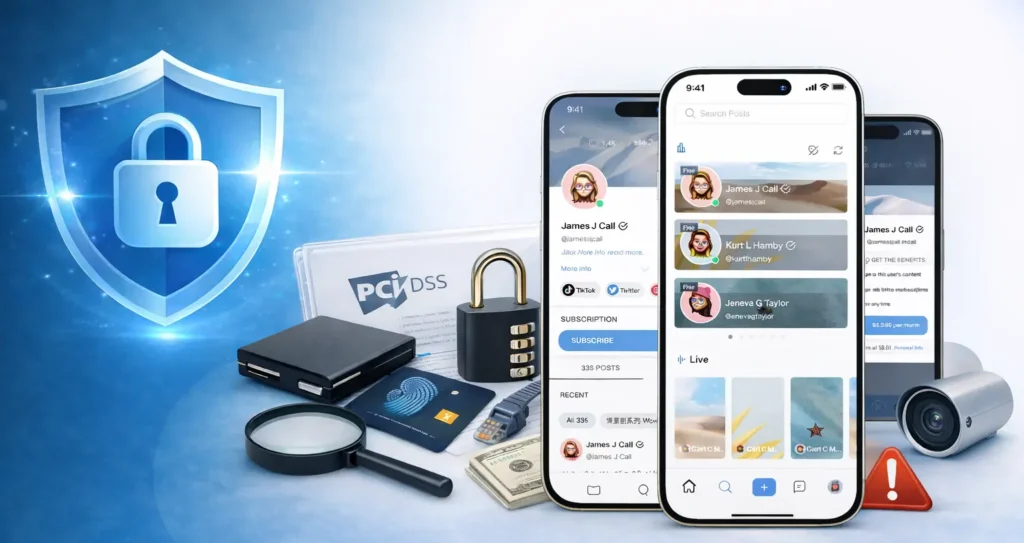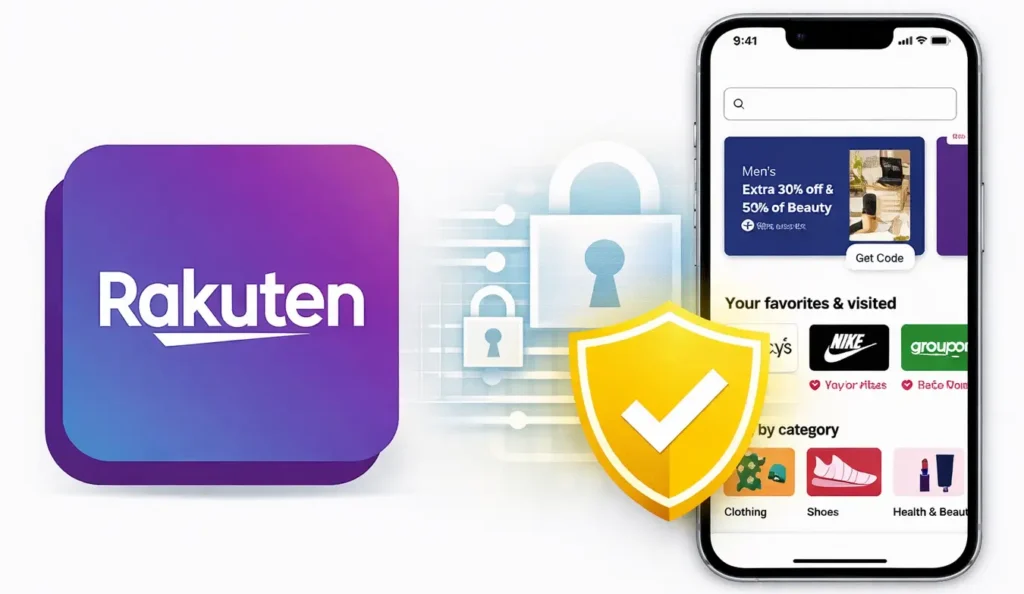Starting a concierge business can be a highly rewarding venture, offering personalized services to a select clientele, often in luxury, travel, or corporate sectors. The concierge business model is evolving with digital technology, where concierge apps now play a significant role in scaling and managing services efficiently. This guide will take you through everything you need to know about starting your own concierge business, from understanding the basics to launching a successful service.
What Is a Concierge Business?
At its core, a concierge business offers personalized services to clients, often taking care of tasks like travel bookings, restaurant reservations, event planning, and more. The goal is to save clients time and provide high-quality, convenient services. These businesses cater to both individual and corporate clients, offering solutions ranging from personal errands to high-end, luxury experiences.
For example, platforms like Lyft clone Concierge App provide corporate clients with customized travel booking services, while high-end services like My Concierge UAE focus on luxury experiences. But how do you get started, and what are the key components of the business?
Why Start a Concierge Business Now?
The demand for concierge services is at an all-time high, driven by busy professionals, corporations, and high-net-worth individuals who are looking for time-saving, personalized solutions. In 2024, the concierge industry is booming, especially with the rise of technology-driven platforms that allow businesses to scale their operations and provide on-demand services via apps.
The concierge services market is growing rapidly, driven by increasing demand for luxury and personalized services. According to Statista’s market forecast, the industry is set to expand significantly in the coming years.
Key reasons to start a concierge business now:
- Increasing Demand for Personalized Services: As people’s schedules become busier, they are willing to outsource personal tasks to concierge services. The rise of on-demand services like Uber and food delivery apps has extended to personal services, creating a robust market for concierge businesses.
- Growing Corporate Market: More businesses are offering concierge services to employees as a perk, especially for C-suite executives and top-performing staff. This offers an excellent B2B opportunity for concierge startups to serve large corporations.
- Technological Advancement: The development of concierge apps and digital platforms makes it easier to scale and manage operations. With automation, AI, and mobile apps, concierge businesses can handle more clients with fewer resources.
- Luxury Market Expansion: The luxury sector is growing, with high-net-worth individuals seeking out unique and personalized services. This trend has fueled demand for luxury concierge services, making it a lucrative niche.
- Opportunities in Niche Markets: Specialized concierge services (e.g., medical concierge, travel concierge, virtual concierge) are gaining traction, allowing entrepreneurs to penetrate specific markets and offer tailored solutions.
By starting a concierge business in 2024, entrepreneurs can tap into these growing trends, capitalize on digital innovations, and provide personalized, premium services in an increasingly fast-paced world.
Market Trends in Concierge Business
The concierge industry has witnessed significant growth, especially as consumers seek personalized and time-saving services. With advancements in technology, the market is shifting towards digital platforms where concierge services are offered through mobile apps and websites. The rise of corporate concierge services, coupled with luxury concierge businesses, is driving the demand for custom solutions.
| Segment | Growth Forecast (2020-2024) | Market Share (2024) |
|---|---|---|
| Luxury Concierge Services | 10% annual growth | 35% |
| Corporate Concierge Services | 15% annual growth | 40% |
| Digital Concierge Apps | 20% annual growth | 25% |
Some key trends influencing the concierge market in 2024 include:
- Digital Transformation: Many concierge businesses are moving towards mobile platforms and apps, making it easier for clients to book and manage services. The concierge app market is projected to grow, especially in regions like the UAE with companies like My Concierge UAE setting industry standards.
- Corporate Concierge Growth: Businesses are increasingly offering concierge services to employees, aiding in travel bookings, event planning, and personal assistance.
- Sustainability & Ethics: There’s a rising demand for environmentally responsible concierge services. Clients are increasingly seeking businesses that promote sustainability in their service offerings.
- AI and Automation: Artificial intelligence is becoming more prevalent in concierge services, providing chatbots and virtual assistants that help streamline client interactions and automate bookings.

Different Types of Concierge Businesses
The concierge business model can take on several forms, each catering to different market segments. Below are the most common types of concierge businesses:
- Personal Concierge Services:
- Description: These services cater to individuals who require help with personal tasks such as errands, bookings, and lifestyle management.
- Target Market: Busy professionals, high-net-worth individuals, and seniors.
- Examples: Personal shopping, home management, and travel arrangements.
- Corporate Concierge Services:
- Description: Aimed at companies, these services help manage employee needs, travel, and events. Many large organizations use concierge services as part of their employee benefits program.
- Target Market: Corporations, startups, and business executives.
- Examples: Booking travel, organizing meetings, and managing corporate events.
- Luxury Concierge Services:
- Description: Focused on high-end clientele, these services offer exclusive access to luxury experiences, such as VIP tickets, private jets, and tailored vacation packages.
- Target Market: High-net-worth individuals, celebrities, and elite clientele.
- Examples: Private yacht bookings, exclusive dining reservations, and access to high-profile events.
- Medical Concierge Services:
- Description: These services focus on managing medical appointments, personal healthcare, and wellness services for individuals, particularly in high-demand medical fields.
- Target Market: Seniors, individuals with chronic illnesses, and medical tourists.
- Examples: Booking medical appointments, organizing home healthcare, and providing wellness management.
- Travel and Hospitality Concierge:
- Description: Typically offered by hotels or travel agencies, these services assist clients with planning trips, booking accommodations, and making travel arrangements.
- Target Market: Tourists, business travelers, and frequent flyers.
- Examples: Trip planning, travel itineraries, and arranging tour guides.
- Virtual Concierge Services:
- Description: With the rise of digital platforms, many concierge services are offered virtually via apps, chatbots, or websites. Clients can book services from anywhere.
- Target Market: Digital nomads, corporate clients, and remote workers.
- Examples: Virtual assistants, event planning, and restaurant reservations via apps.
Steps to Start Concierge Business

Step 1: Understanding the Concierge Business Model
The concierge business model revolves around offering personalized and on-demand services, often for a premium price. There are two main types of concierge services:
- Personal Concierge: These services focus on individuals, providing help with daily errands, travel arrangements, event management, and lifestyle needs.
- Corporate Concierge: Targeted at businesses, these services assist companies with tasks such as employee travel, meeting arrangements, and executive services.
To successfully launch your concierge business, it’s important to define the type of services you want to offer. Once you have a clear idea of your niche, you can tailor your service offerings to suit your target market.
Application Conciergerie: Leveraging Technology
In today’s digital age, concierge businesses are increasingly relying on apps to manage and deliver services more efficiently. Developing an application conciergerie can help streamline operations and improve customer experiences by providing instant service bookings, real-time updates, and communication features.
If you’re tech-savvy or have access to developers, building a concierge app for your business can provide you with a competitive edge. Many concierge businesses, especially those catering to corporate clients, utilize platforms similar to the Lyft Concierge App to deliver fast, reliable, and scalable services.
Step 2: Developing a Business Plan
Like any business, a successful concierge venture requires a solid business plan. Your business plan should cover:
- Target Market: Identify your audience. Are you catering to individuals seeking luxury experiences or corporate clients looking for high-end services?
- Service Offerings: Clearly define your services. Will you focus on travel arrangements, personal shopping, event planning, or all-inclusive services?
- Pricing Strategy: Most concierge businesses operate on a membership or retainer model. Decide if you will offer pay-per-service options or packages.
- Marketing Strategy: Plan how you will reach your target audience through digital marketing, social media, and partnerships with luxury brands.
Step 3: Establishing a Legal Framework
When starting a concierge business, it’s crucial to set up the correct legal framework. Register your business and ensure you have the necessary licenses and insurance. Depending on your location, the requirements may vary. For instance, concierge businesses operating in My Concierge UAE often need specific licenses related to luxury services and tourism.
Make sure to consult a legal professional to understand the regulations and compliance necessary in your region.
Step 4: Creating Your Brand and Online Presence
Building a strong brand is essential to the success of your concierge business. Your brand should reflect luxury, trustworthiness, and reliability. Focus on these key elements:
- Website: A professionally designed website is a must. Make sure it’s user-friendly and clearly showcases your services.
- Social Media: Use social media platforms to engage with potential clients. Share testimonials, luxury experiences, and tips on how clients can save time by using your services.
- SEO Optimization: Include relevant keywords like “concierge what is,” “how to spell concierge,” and other LSI terms related to your niche to improve your search rankings.
Step 5: Hiring and Training Staff
A concierge business is only as good as the services it offers. If you plan to scale, you’ll need to hire staff. Make sure they are trained in delivering excellent customer service and maintaining the confidentiality and professionalism your clients expect.
You may also need to train your team in using your concierge app or other software tools to manage bookings and client interactions efficiently.
Step 6: Marketing and Growing Your Business
Once your business is up and running, focus on growth by investing in marketing. Here are a few strategies:
- Partnerships: Form partnerships with hotels, travel agencies, and luxury brands to offer exclusive services.
- Referrals: Build a referral program for your existing clients to recommend your services to others.
- Concierge App: Promote your concierge app through online ads and partnerships. Make sure it’s user-friendly and offers a seamless experience to your clients.

How to Spell Concierge: Common Questions
Concierge services are still a new concept for many, and some may even wonder how to spell “concierge” or what exactly it entails. This presents an opportunity to educate your audience through blog posts, FAQs, and informative social media content. By providing clear and helpful answers, you can position your business as an authority in the concierge industry.
Want to build a home services app with trusted professionals?
Our expert team will help you create a seamless, scalable,
and feature-rich platform.
Steps to Develop a Concierge Business
| Development Step | Description |
|---|---|
| Research & Identify a Niche | Determine your target audience and decide whether to focus on personal, corporate, or luxury clients. |
| Develop a Business Plan | Include market analysis, services offered, pricing model, and marketing strategy. |
| Build a Concierge App | Invest in technology to develop a mobile app that allows customers to book and manage services easily. |
| Legal and Compliance Setup | Obtain necessary licenses and ensure compliance with regional regulations. |
| Hire and Train Staff | Hire a team with excellent customer service skills, especially if scaling operations is a goal. |
| Marketing and Branding | Build a strong online presence through SEO, partnerships, and targeted digital campaigns. |
| Launch and Scale | Roll out your services, focus on customer feedback, and scale through partnerships and app development. |
Developing a concierge business requires strategic planning and attention to detail. Below are the key steps involved in setting up a concierge business, especially if you’re integrating digital solutions like a concierge app.
- Research & Identify a Niche: Understand your target market and determine the type of concierge services you will offer—be it personal, luxury, or corporate.
- Develop a Business Plan: This should include your service offerings, pricing strategy, revenue model, and marketing approach. Decide whether you’ll focus on premium services or aim for scalability with app-based solutions.
- Build a Concierge App: Develop a digital platform (website or app) where customers can easily book and manage services. This is critical for scaling your business and improving the customer experience.
- Legal and Compliance: Ensure your business is registered and compliant with local regulations. Obtain necessary licenses, especially if you are operating in regions with specific rules like My Concierge UAE. Ensure your business is registered and compliant with local regulations. You can refer to this guide on business licensing to understand the necessary permits and certifications
- Hire and Train Staff: Hire professional staff trained in customer service, privacy, and confidentiality. Equip them with technology to manage and deliver services efficiently.
- Marketing and Branding: Build a strong online presence and engage in partnerships with luxury brands, hotels, and corporate clients. Leverage digital marketing strategies to reach your target audience.
- Launch and Scale: After the initial setup, focus on growth through partnerships, referral programs, and expanding your service offerings based on customer feedback.
Cost of Development
The cost of developing a concierge business largely depends on the scale of your operations, the type of technology you integrate (especially if building a concierge app), and your target market. Below is an approximate breakdown of costs for different development stages.
| Development Component | Estimated Cost |
|---|---|
| Market Research & Business Plan | $2,000 – $5,000 |
| Website Development | $5,000 – $10,000 |
| Concierge App Development | $20,000 – $50,000 |
| Legal & Licensing Fees | $1,000 – $3,000 |
| Hiring & Training Staff | $10,000 – $20,000 (Initial) |
| Marketing & Branding | $5,000 – $15,000 (Annual) |
| Technology Infrastructure | $3,000 – $8,000 (Annual) |
| Ongoing App Maintenance | $5,000 – $10,000 (Annual) |
Note: These are estimated figures and can vary significantly based on location, scale, and type of services offered.
Concierge Service Cost Calculator
Concierge Service Cost Calculator
Total Cost: $0
Concierge Business Competitor Analysis
The concierge business market is competitive, with well-established players dominating certain segments. However, there is still ample opportunity for new entrants to differentiate themselves by focusing on niche markets, leveraging technology, and providing exceptional customer service. Below is an analysis of the key players in the market:
- Luxury Concierge Services:
- Key Players: Quintessentially, John Paul Group, and Pure Entertainment Group
- Market Focus: These businesses focus on high-net-worth individuals, offering exclusive services such as private jet bookings, luxury vacation planning, and access to VIP events.
- Competitive Advantage: They have strong partnerships with luxury brands and hotels, allowing them to provide unique, high-end experiences.
- Differentiation Opportunity: New entrants can compete by offering highly personalized, tech-enabled luxury services through a mobile app or by focusing on under-served luxury niches like eco-friendly luxury travel or exclusive wellness experiences.
- Corporate Concierge Services:
- Key Players: Circles (a Sodexo company), VIPdesk Connect, and Lyft Concierge App
- Market Focus: These companies cater to corporate clients, offering services such as employee travel management, meeting planning, and personal assistance for executives.
- Competitive Advantage: Established relationships with corporations and an extensive network of service providers make them a go-to solution for businesses.
- Differentiation Opportunity: A new concierge business could focus on providing tech-driven corporate concierge services, like offering AI-powered personal assistants or integrating concierge services directly into company platforms like Slack or Microsoft Teams.
- Regional Players:
- Key Players: My Concierge UAE, Concierge Services London, and Le Collectionist
- Market Focus: Regional concierge services often focus on providing personalized solutions in a specific location, like the UAE or major cities.
- Competitive Advantage: They have strong local networks and knowledge, giving them an edge in providing unique regional experiences.
- Differentiation Opportunity: New businesses can target expats, travelers, or remote workers in these regions, offering mobile app solutions that provide concierge services across multiple countries or regions.
| Competitor | Target Market | Competitive Advantage | Differentiation Opportunity |
|---|---|---|---|
| Quintessentially | High-net-worth individuals, celebrities | Luxury partnerships, VIP event access | Offer tech-enabled personalized experiences or focus on eco-friendly luxury services |
| Lyft Concierge App | Corporate clients, travel management | Large corporate partnerships, wide travel network | Provide AI-powered personal assistants or corporate concierge integrated with company platforms (e.g., Slack) |
| My Concierge UAE | High-end travelers and expats in the UAE | Local expertise, access to luxury experiences | Expand to offer concierge services across multiple regions or tailor services for digital nomads and remote workers |
| Circles (Sodexo) | Corporate clients | Strong corporate client base, extensive network | Focus on corporate wellness services or on-demand, tech-driven concierge platforms |
| Pure Entertainment Group | High-net-worth individuals, luxury travelers | High-end, exclusive vacation packages | Target niche luxury experiences like sustainable travel or wellness-focused vacations |
How to Differentiate as a New Entrant:
- Specialization: Focus on a niche market (e.g., corporate wellness concierge, sustainable travel concierge) to stand out from broader service offerings.
- Technology: Leverage technology, such as mobile apps, AI chatbots, and automation, to provide faster and more personalized service.
- Customer Service: Providing 24/7 availability and unmatched customer service can differentiate new entrants from larger competitors with less flexibility.
- Sustainability: Offer eco-friendly or socially responsible concierge services, tapping into the growing demand for ethical consumerism.
Case Study: Successful Concierge Business Models
Case Study: How “Elite Concierge Solutions” Built a Scalable Digital Concierge App in 12 Months
Challenge: Elite Concierge Solutions, a startup, aimed to disrupt the luxury concierge industry by offering tech-enabled, personalized services to busy professionals and high-net-worth individuals. The founders faced several challenges, including building a scalable platform, establishing brand authority, and attracting high-end clients in a crowded market.
Solution:
- Tech Integration: The company decided to develop a mobile app, allowing users to book services 24/7, track requests, and get real-time updates. The app also integrated with AI-driven chatbots to assist with routine inquiries, improving efficiency and reducing the need for a large customer service team.
- Personalized Experience: To compete with established players, Elite Concierge Solutions offered a highly personalized experience. Each user was assigned a personal concierge who could tailor recommendations based on preferences and past bookings.
- Partnerships: Elite Concierge Solutions built exclusive partnerships with luxury brands, travel agencies, and restaurants, ensuring they could offer unique services that competitors didn’t provide. The app allowed users to access these services with just a few taps.
- Sustainability Focus: The company differentiated itself by offering eco-friendly services, such as sustainable travel options, electric car rentals, and partnerships with socially responsible brands.
Results:
- Scalable Growth: In the first year, Elite Concierge Solutions expanded from a small team handling 50 clients to a digital platform servicing over 500 high-net-worth clients globally.
- High Client Retention: The personalized service and tech integration led to a 90% client retention rate, with many clients upgrading to premium membership plans.
- Revenue Increase: Through the combination of app-based service bookings, exclusive partnerships, and membership fees, the company achieved a 40% increase in revenue in the first 12 months.
| Metric | Before Solution | After Solution |
|---|---|---|
| Number of Clients | 50 | 500+ within 12 months |
| Customer Retention Rate | N/A | 90% retention due to personalized services |
| Revenue Growth | Moderate growth | 40% revenue increase in the first 12 months |
| Partnerships | No exclusive partnerships | Secured partnerships with luxury brands and services |
| Service Offerings | Basic concierge services | Expanded into premium services and eco-friendly options |
Revenue Model
The revenue model for a concierge business can be flexible and varied depending on the services provided. Common revenue models include:
- Membership Fees: Charge clients a monthly or annual membership fee for access to services. This is common for luxury concierge services.
- Service-Based Pricing: Clients are charged per service request. For instance, booking a restaurant or event may have a set fee.
- Retainer Model: Businesses and corporate clients may retain your services on a monthly or yearly basis, paying a flat fee for an agreed-upon number of services.
- Commission-Based Model: Some concierge businesses partner with other companies (like hotels or travel agencies) and earn commissions on bookings made through their platform.
- Premium Add-ons: Offering additional premium services for a higher cost, such as expedited requests or exclusive luxury experiences, can generate additional revenue.
| Revenue Model | Description | Example |
|---|---|---|
| Membership Fees | Charge clients a recurring fee (monthly/annually) for access to services. | Luxury concierge memberships offering a range of personal or travel-related services. |
| Service-Based Pricing | Charge clients based on the individual services requested. | Pay-per-service for personal errands or corporate meetings. |
| Retainer Model | Offer a flat-rate service for corporate clients or individuals on a regular basis. | Monthly or yearly retainer fees for businesses requiring regular concierge services. |
| Commission-Based Model | Earn commissions from third-party services (e.g., travel, events) booked through your concierge app. | Partnerships with hotels or travel agencies where you earn a percentage of the service fee. |
| Premium Add-Ons | Offer extra services at a premium price for expedited or luxury options. | Fast-tracking travel bookings or VIP event access for an additional fee. |
Integrating these models ensures that you can cater to a wide range of clients, from high-net-worth individuals to corporations, while maintaining profitability.
How to Market Concierge App ?
1. Leverage App Store Optimization (ASO)
- Optimize App Store Listings: Ensure your app store description is clear, highlights the key features of your concierge app, and uses relevant keywords (e.g., “personal concierge,” “corporate concierge,” “luxury concierge services”).
- Screenshots and Videos: Use high-quality images and videos showcasing the app’s interface and features to attract users.
- User Reviews & Ratings: Encourage satisfied users to leave positive reviews, as high ratings can boost your app’s visibility in search results.
2. Develop a Strong Online Presence
- Website: Create a professional website dedicated to your concierge app. Include SEO-optimized content explaining the services, features, and benefits of the app.
- Blog Content: Regularly post blog articles that address your target market’s pain points and how your app can solve them (e.g., “How a Concierge App Saves Busy Professionals Time”).
- Social Media Presence: Promote your app on social media platforms like Instagram, LinkedIn, and Twitter, showcasing features, client testimonials, and success stories.
3. Influencer and Affiliate Marketing
- Influencer Collaborations: Partner with influencers or industry experts who can promote your concierge app to their audience. Consider micro-influencers who cater to niches like luxury travel or corporate services.
- Affiliate Programs: Set up an affiliate program where partners or bloggers earn commissions for referring new users to your app.
4. Targeted Digital Advertising
- Social Media Ads: Run targeted ads on Facebook, Instagram, LinkedIn, and other relevant platforms. Use audience targeting to reach professionals, high-net-worth individuals, or businesses that would benefit from concierge services.
- Google Ads: Use Google search and display ads to capture users actively searching for services related to “concierge app,” “personal assistant app,” or “corporate concierge solutions.”
- Retargeting Campaigns: Use retargeting ads to engage visitors who have interacted with your website but haven’t downloaded the app yet.
5. Partnerships with Corporations and Luxury Brands
- Corporate Concierge Solutions: Partner with businesses to offer your app as part of their employee benefits. Corporate concierge services are in high demand, and partnering with companies can give you access to a large user base.
- Luxury Brands Collaboration: Partner with high-end brands, hotels, or travel agencies to offer exclusive services through your app. This is particularly relevant for luxury or travel concierge apps.
6. Referral Program
- Referral Incentives: Implement a referral program where existing users can invite friends or colleagues to use the app in exchange for rewards, such as free services or discounts on premium memberships.
- Gamification: Encourage users to share the app by offering points, badges, or rewards for every successful referral, making the experience more engaging.
7. Engage in Content Marketing
- Educational Content: Create how-to videos or guides showing how your concierge app can help users save time, organize their day, or streamline business operations. Share these through your website and social channels.
- Guest Posting: Write guest posts for industry blogs or publications in luxury, travel, or corporate spaces to showcase the app’s value.
- Email Campaigns: Build an email list and send regular newsletters with tips, case studies, or exclusive deals for using your concierge app.
8. Offer a Free Trial or Freemium Model
- Free Trial: Allow users to try a premium version of the app for free for a limited time. This can attract users who may be hesitant to pay upfront for the service.
- Freemium Model: Offer a free version of the app with basic features, while advanced features or services are locked behind a paid tier. This gives potential users a chance to experience the app before committing to a purchase.
9. Use Press Releases and PR Campaigns
- Press Coverage: Reach out to journalists, bloggers, or industry publications to cover the launch or updates of your concierge app.
- App Awards and Showcases: Submit your app to prestigious app awards or platforms that showcase innovative tech products, especially in the lifestyle or business sectors.
10. Build Partnerships with Travel and Hospitality Platforms
- Hotel and Travel Integrations: If your app focuses on luxury or travel concierge services, build partnerships with hotels, airlines, or booking platforms to offer exclusive services or integrations.
- Corporate Travel: Partner with corporate travel agencies to offer travel concierge services through your app.
11. Local Marketing and Sponsorships
- Local SEO: Optimize your app for local search queries like “best concierge app in [city name]” or “corporate concierge solutions in [region].”
- Sponsorship of Local Events: Sponsor local events that attract your target market, such as business conferences or luxury exhibitions, to showcase your app’s capabilities.
12. Focus on Customer Retention
- In-App Messaging and Push Notifications: Use personalized messages and push notifications to remind users of your services, offer tips, and highlight new features.
- Offer Loyalty Programs: Reward loyal customers by offering exclusive deals, priority access to services, or discounts on premium subscriptions.
Possible Market Penetration Strategies
Breaking into the concierge industry requires targeted and well-executed strategies. Below are some market penetration strategies to ensure a successful launch and sustainable growth:
- Leverage Digital Marketing:
- Strategy: Use SEO, social media marketing, and paid ads to increase visibility. Develop content around relevant keywords like “concierge app,” “concierge business model,” and “Lyft concierge app” to attract potential clients searching for these services.
- Tactics: Publish blogs, create video content, and run targeted ads across platforms like Google and Instagram to increase traffic and brand awareness.
- Focus on Partnerships:
- Strategy: Establish partnerships with luxury brands, hotels, travel agencies, and corporate companies to offer complementary services.
- Tactics: Provide special concierge services for a partner’s customers. For example, collaborating with high-end hotels or real estate agents can give you access to elite clients.
- Offer Free Trials or Introductory Offers:
- Strategy: Attract clients by offering a free trial or discounted membership for the first few months.
- Tactics: Create limited-time promotions for new clients to experience your services. Ensure the initial experience exceeds expectations to retain them as long-term customers.
- Niche Targeting:
- Strategy: Instead of trying to serve everyone, focus on a specific niche like corporate clients, medical services, or travel.
- Tactics: Use niche-specific marketing and tailor your services to meet the exact needs of the market. For instance, focusing on My Concierge UAE and offering region-specific services can help build a strong presence in the UAE market.
- Develop a Concierge App:
- Strategy: Build a user-friendly app to allow clients to book services with ease, manage their preferences, and communicate with concierge agents in real-time.
- Tactics: Offer app-exclusive promotions and personalized services. This makes it easier for clients to engage with your brand and book services without friction.
- Referral Programs:
- Strategy: Build a referral system where existing clients can refer friends or colleagues for a discount on future services.
- Tactics: Offer incentives for clients who bring in new business, such as discounts on premium services or loyalty rewards.
- Attend Networking Events and Industry Conferences:
- Strategy: Attend high-profile events to network with potential corporate clients or luxury partners.
- Tactics: Build relationships with industry leaders in hospitality, travel, and corporate services. Present your business as a trusted partner for managing their concierge needs.
Challenges in Starting a Concierge Business
While concierge businesses offer significant growth potential, there are several challenges entrepreneurs may face:
- Client Trust and Confidentiality:
- Challenge: Concierge businesses often handle sensitive personal information and tasks. Building trust and ensuring client confidentiality is crucial for success.
- Solution: Establish clear privacy policies and maintain high standards of professionalism and discretion. Implement strong data security measures.
- Managing Client Expectations:
- Challenge: High-end clients may have unrealistic expectations, demanding services at any hour. It can be difficult to meet these expectations consistently.
- Solution: Set clear service guidelines and communicate your availability. Offer premium services with dedicated support to manage client needs.
- Scalability:
- Challenge: Personalizing services for multiple clients simultaneously can be difficult without sacrificing quality.
- Solution: Leverage technology, such as developing a concierge app, to streamline and automate service requests, bookings, and client communication.
- High Competition in Luxury Markets:
- Challenge: The luxury concierge market is saturated with established players. New businesses may struggle to differentiate themselves.
- Solution: Focus on niche services or under-served markets to stand out. Offer unique services or partner with exclusive brands.
- Legal and Compliance Issues:
- Challenge: Licensing and regulatory compliance vary by region and industry, especially in markets like healthcare or travel.
- Solution: Consult legal experts to ensure that your business meets all necessary requirements. Regularly update licenses and certifications.
Conclusion: Starting a Concierge Business
Launching a concierge business in 2025 is an exciting opportunity, especially with the growing demand for personalized and luxury services. Whether you’re building a service for individuals or corporations, leveraging technology through a concierge app and understanding the concierge business model will be key to your success.
By following these steps, you can create a thriving business that meets the unique needs of your clients. And if you’re ready to start your journey, contact us at Miracuves Solutions for expert advice and custom app development tailored to the concierge industry.
Why start from scratch?
Our pre-built home services app solution is fast,
scalable, and fully customizable.
FAQ
What is a Concierge Business and How Does it Work?
A concierge business offers personalized services to clients, handling tasks such as travel arrangements, event planning, and personal errands. The business can cater to individuals, corporations, or high-net-worth clients seeking luxury services. Typically, clients either pay for services per use or sign up for a membership that grants them ongoing access to concierge services. Concierge apps are becoming popular for managing bookings and requests, making the services more accessible.
How Much Does it Cost to Start a Concierge Business?
The cost of starting a concierge business can range between $20,000 to $100,000 depending on factors like app development, staffing, licensing, and marketing. Building a concierge app alone can cost between $20,000 to $50,000, while ongoing operational costs include salaries, office space, and marketing. Legal fees and insurance must also be factored into your initial investment.
What Types of Concierge Services Can I Offer?
Concierge businesses can offer a variety of services based on their target market:
Personal Concierge: Errands, personal shopping, travel bookings.
Corporate Concierge: Employee assistance, event management, travel planning.
Luxury Concierge: VIP event access, private jets, luxury vacations.
Medical Concierge: Appointment scheduling, health management, wellness services.
Travel Concierge: Custom travel itineraries, hotel bookings, exclusive tours.
Tailoring your services to a specific niche can help you stand out in a competitive market.
How Can I Differentiate My Concierge Business from Competitors?
Differentiating your concierge business requires focusing on:
Technology: Developing a concierge app to streamline bookings and provide personalized service.
Niche Services: Offering specialized services like eco-friendly travel or corporate wellness programs.
Customer Experience: Providing 24/7 support and tailoring experiences to client preferences.
Sustainability: Positioning your business as socially responsible by offering eco-conscious or ethical services.
Is a Concierge Business Profitable?
Yes, a concierge business can be highly profitable, especially if it targets high-net-worth individuals or corporate clients. By offering personalized, premium services through membership fees, retainer models, or commission-based partnerships, concierge businesses can generate significant revenue. The scalability of a concierge app also allows businesses to expand their client base without proportional increases in operational costs.
What Skills Are Needed to Run a Concierge Business?
Running a successful concierge business requires a combination of skills:
Customer Service: Providing a high level of service and attention to detail is crucial to client retention.
Organization: Efficiently managing multiple tasks and client requests simultaneously is essential.
Networking: Building strong relationships with vendors, partners, and clients will help grow your business.
Technical Skills: Understanding or managing a concierge app and digital platforms to streamline service offerings is key to scaling operations.








